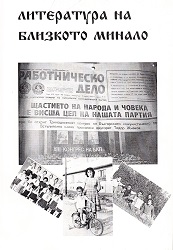
We kindly inform you that, as long as the subject affiliation of our 300.000+ articles is in progress, you might get unsufficient or no results on your third level or second level search. In this case, please broaden your search criteria.


The article deals with the idea of the visible and invisible stairs and steps in literary texts, the ascents and descents (both literal and figurative) along the ladders of the structures and literary borders. During the years of socialism the stairs were a trivially used symbol of going up, conquering heights, an uninterrupted ascent to the highest possible political step – that of communism. Consequently, this also meant the coming of the end of history because beyond this highest level there could not be any other. In the article, this idea is revealed against the background of Flying Heroes and Wayside Dwellings in the collection of Gencho Stoev’s works “Like a swallow”.
More...
This paper focuses on the reader books in the period between 1947 and 1986. The choice of the literature texts and ideological problems in the children`s education are analyzed.
More...
The key role of the construction worker in the building of the sacred communism in Bulgaria is a leading motif in the most of Penio Penev’s poetry works. Proletarian poet most often glorifies the importance of the new man, the man-constructor and his labour efforts, speaking on behalf of the nation in poems such as "His Majesty the Man", "Corpus 206", "Building Spring" and etc. In the majority of Penio Penev`s poetry, he presents the shock-worker as a basic constructive element of the Bulgarian communism’s utopian dream. Penev is generational related to the historical period from the late 40s and early 50s of the Twentieth century, in which he formed himself as a mature creative person. His short poetic life is a series of rise and fall, as it happens with his attitude towards life in general. However, the topic of the construction concentrated on the image of the worker as an engine of a new technical time is a key one and accompanies the author till the very end of his life, which coincides with the loss of relevance of this type of themes in the Bulgarian poetry of the early 60s of the Twentieth century.
More...
The main attention in the article is focused on how social issues are reflected in Marya Grubeshlieva’s works, written before, during and after the Second World War and published in the collected works, entitled „On the threshold” (1955). Internal strategies that determine the nature of fabulation are discussed in terms of utopian social project which Communist Party imposes on the agenda of modern Bulgarian society. In the article is paid attention on the ways in which the authoress tries to create literary texts, subject to the new method in art – socialist realism.
More...
The paper deals with reviews of novel “Lavina” by Blaga Dimitrova. It focuses on the different critical strategies concerning interpretations of the book that outline the view of the whole criticism tradition in that period.
More...
This article suggests an attempt for analysis of the famous literary work by Ilia Volen. Its aim is the interpretation of the inner state and psychology of the main character – the former priest Nikolay Nazarov, - that is tragically split between humility and theomachy. His own inner contradictions and his relationships with relatives (his wife Johna, their son Stephan) and especially with God are also studied. Stephan’s death appears to be a crucial moment in the development of the plot because it becomes a reason for change of Nazarov’s view about life and radical transformation of his attitude towards the religion.
More...
The text focuses on the politics of self-fashioning and the strategies for constructing of the autobiographical self in memoir literature, written by Bogomil Raynov, key figure in Bulgarian intellectual life during the socialist period. Raynov creates a character, who influences the establishment of tendencies, the opinions of some specific political figures and some concrete forms of party politics from a position, set in a complex relation to the official “seat” of power, thus having not really ideological, yet still authoritative place in the formation of the aesthetics and politics of the period. The analysis attempts to show that the reflexive self-fashioning of the intellectual in a situation of a repressive regime, done in the context of an always selective life-narrative, relies on diverse strategies for legitimizing of an image of life, in which the integrity of the subject is impossible.
More...
The article studies the poet Ivan Metodiev’s magazine, named Nava as an essential conceptual attempt to understand the world, time and poetry from a point of view which was new to Bulgarian literature – on the borderline between Eastern and natural philosophy and Wittgenstein’s analytic philosophy. Apart from the relation with the eastern forms, these short fragments are rooted in the ancient cultural traditions in Bulgaria. This philosophy of history has its own cosmogony and bears a great deal of positivism.
More...
The play “The trial against the Bogomils” by Stefan Tsanev went out in a typewritten form in 1969 and has not been on Bulgarian stage at the time. The reason is that the party circles at that time perceive the text as an allegory of the political reality of the 60’s in Bulgaria and in the prototypes of the characters they see the authority – `The first` (Todor Zhivkov) and the `Princess` (Lyudmila Zhivkova). In reality, the play turns out not as a ‘hystorical tragedy’, as its author represents it, but rather as a parody of the theater of power. The playwright achieves this effect by means of pictures, revealing the theatricality of the different forms of social life (‘the theatre’ of the court, of history, of the royal institution). The ideology of the Bogomil religious (and the alongside passed parallel with the communism) is strongly and sarcastically diminished by the elements of commedia dell ’arte, burlesque and commedia fool, used in the play.
More...
This article presents the struggle for spiritual survival in the book of poetry “Cry from the Prison” of the poet Joseph Petrov created in captivity during the writer's stay in the Belene concentration camp. Writing camp poetry is not only a protest against violence and acts of dehumanization, but also a process of purification and recovery from the suffered humiliation. The text focuses on the power of the speech, which on one hand causes the imprisonment of the artist, but on the other hand relieves his suffering. Poetry is a kind of self-communication which combines the memories, the imaginary world of the character and the surrounding reality through which the author overcomes the boundaries of the "spiritual" prison. In this sense, the very act of creation is an attempt to preserve his spirit and identity and serves a specific verbal revenge over the torturers. Popularization of the Bulgarian camp poetry will help for a better understanding of the socialist period.
More...
The article deals with the problem of how government assesses the novels of M. Sholokhov – their creative and institutional destiny. The adaptation of the first two novels of the author to the language and expression of the opera make them popular (mass) art. This is one of the weapons of socrealism – to put literature in the field of popular culture.
More...
The article explores the film adaptation process of Bohumil Hrabal’s worldly praised novella Closely Watched Trains. It aims at providing an adequate and sufficient set of approaches to exploring a particular film adaptation from a contemporary point of view. The text explores the possibilities of the socialistic historical reality, the art cinema, the auteur theory of the director’s camera-pen, and the adaptation theories in analysing the Oscar awarded film by Jiří Menzel created with the screenplay partnership of the renowned underground literary author Bohumil Hrabal. Main concerns of the study are: proposing a set of methods and approaches to analysis in the current film case study; elaborating on the notions of perceiving Closely Watched Trains as a Czechoslovak New Wave product, an auteuristic project, and a cult movie; and further expanding on the critically acknowledged idea of the distinctive screen co-authorship between Bohumil Hrabal and Jiří Menzel.
More...
The article discusses the poetry and prose of Anna Barkova in the context of poetic century.
More...
The article is dedicated to the problem of the publication of the translations of Viktor Astafiev’s stories and novels in Bulgarian. The first Astafiev’s book The Horse with a pink mane appeared in 1968 in the Bulgarian language. Vladimir Georgiev was the first translator. In the seventies were translated a lot of creative works. The author of the article examines the problem of the variety of translations of one text. In the eighties Astafiev’s works are published after publishing in Russia and in excellent translations and Astafiev became one of the well-read Soviet writers.
More...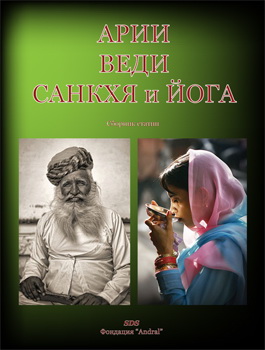
Collection of papers and articles on ancient Indian literature and culture
More...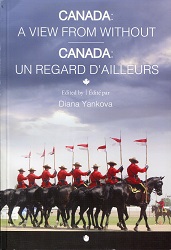
The contributions in this collection pertain to a variety of multiethnic, multilingual and multicultural aspects of Canada, epitomizing the diverse academic interests of the members of the Bulgarian Chapter of the Central European Association for Canadian Studies. The Bulgarian Chapter is one of the recent additions to the Association —formed in 2004 — but since its very inception it has proved to be a vibrant and enthusiastic society for academics, to which the present volume undeniably testifies. The papers in this volume address a broad range of topics which have been grouped according to their subject matter: history/culture, literature, linguistics, and teaching. The study of Canadian culture is seen to involve both a general introduction to various aspects of Canadiana and the close scrutiny of phenomena that belong to specific subject areas.
More...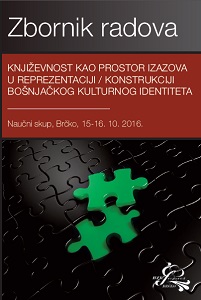
Through the analysis of contemporary works of fiction, the papers published in these proceedings aim to shine light on the representation and/or construction of the Bosniak identity. Furthermore, as a result of the academic conference that preceded the publishing of these papers, these proceedings represent a collection of works which passed through the scrutiny of the Bosniak academic community, and thus presents an incumbent contribution to the fields of literary studies, sociology, contemporary history and cultural studies.
More...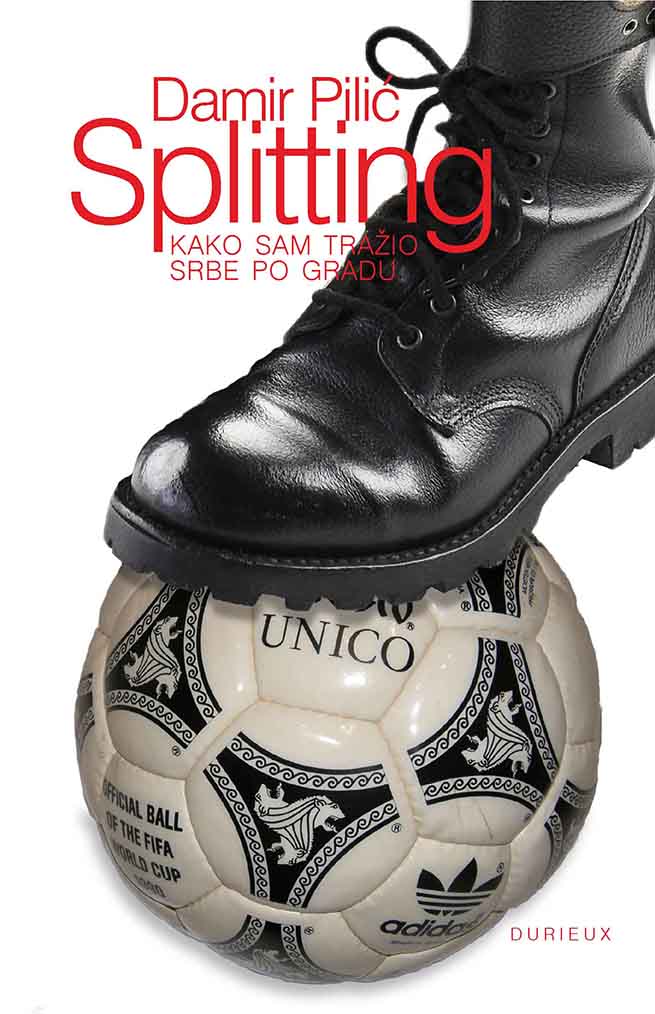
In the novel "Splitting", with the ominously ambiguous subtitle "How I Searched for Serbs in the City" (which in another culture, say Czech, could be the title of some Hašek humoresque), a whole world of good neighbours, friends and schoolmates cracks at the seams and collapses. Based on the experience of youth that is maturing in the shade of socialist blocks of Split through games of football, first drunkenness, petty theft, skipping classes and confused, casual sex, Split youth suddenly, still green, learns that "we are not all the same", this prose precisely depicts and demystifies the time in which the Dalmatian metropolis shockingly and forever changed its face. The plot of the novel mostly takes place in one of Split's neighborhoods inhabited by former Yugoslav military (JNA) personnel, mostly serving in the former naval base of Lora, in the period from the New Year 1990 to November 15 of 1991, when the first shells from the ships of the then Yugoslav navy fell on Split. Told from the perspectives of several characters, mostly underage high school students, who show more or less misunderstanding and resistance to the changes that are taking place, this Split story seems more authentic and true than anything written so far about the period. With this novel, journalist and publicist Damir Pilić has established himself as an excellent narrator. Damir Pilić was born in 1969 in Šibenik. He has a master's degree in psychology and a degree in journalism from Zagreb University. He published the scientific monograph Samoubojstva: oproštajna pisma (Suicides: Farewell Letters, 1998); the novels Đavo prvo pojede svoju majku (The Devil Eats His Mother First, 2001), Splitting (2014) and Kao da je sve normalno (As if Everything is Normal, 2018); the journalistic study Marx nije mrtav (Marx is Not Dead, 2016) as well as Tito očima Krleže (Tito Through The Eyes of Krleža, 2020). In co-authorship with Dražen Lalić, he published a book about young Split delinquents Na mladima svijet zastaje (The World Stops for Young People, 2001) and the monograph Torcida: Pogled iznutra (Torcida: An Inside View, 2011), and with Ed Vujević a study on former heroin addicts Dedal na iglama (Daedalus on Needles, 2005). From 1994 to 2001 he worked as a reporter for Feral Tribune, and since 2001 he writes for Slobodna Dalmacija newspapers. He lives in Split.
More...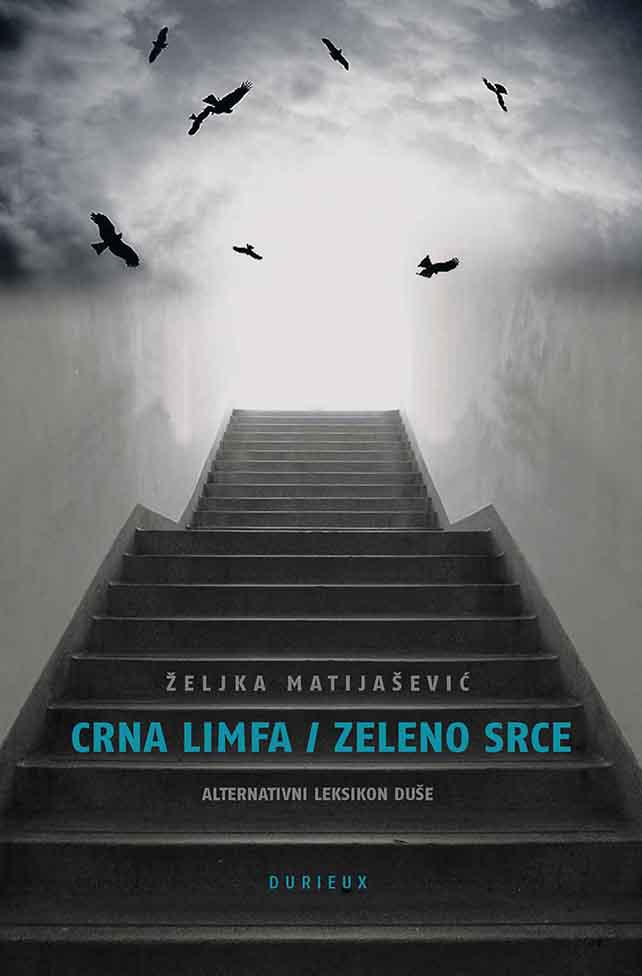
Black Lymph/Green Heart: The Alternative Lexicon of Soul is a glossary of terms which the author deemed significant for today's collective and individual psychic condition. The selected entries have their definitions as in ordinary lexicons. However, the alternative lexicon selects the terms differently, and uses a different methodology of their treatment. In this lexicon, you will find apparently arbitrarily selected entries with inconsistently written definitions. But it is precisely with that subjective and ironic approach that the author reveals the characteristics of the listed concepts, which are important in some not-so-rare situations. The ones that concern our psychological welfare. This unscientific book, that parodies the scientific structure of a lexicon as such, reveals the functioning of narcissists, egomaniacs, psychopaths and sociopaths who have become a norm, instead of an exception. If you want to know what melancholy and femmes fatales have in common, or what is the nature of a relationship between pathocracy and a tram, The Alternative Lexicon of Soul will give you the answers and make you laugh at the same time. Željka Matijašević was born in 1968, in Zagreb. She graduated in Comparative Literature, and French Language and Literature at the Zagreb Faculty of Humanities and Social Sciences. She obtained her doctor's degree at the Trinity College of the Cambridge University. She is a full-professor at the Department of the Comparative Literature at the Zagreb Faculty of Humanities and Social Sciences. Her main interests are psychoanalytic theory and applied psychoanalysis. She is an author of six scientific books: Lacan: ustrajnost dijalektike (2005), Strukturiranje nesvjesnog: Freud i Lacan (2006), Uvod u psihoanalizu: Edip, Hamlet, Jekyll/Hyde (2011), Stoljeće krhkog sebstva: psihoanaliza, društvo, kultura (2016), Drama, drama (2020), and The Borderline Culture (2021). She also authored one novel, Defences with the Taste of Death (2019), and a lexicon Black Lymph/Green Heart: The Alternative Lexicon of Soul (2017). She is a member of La Fondation Européenne pour la Psychanalyse and the Croatian Writers Society.
More...